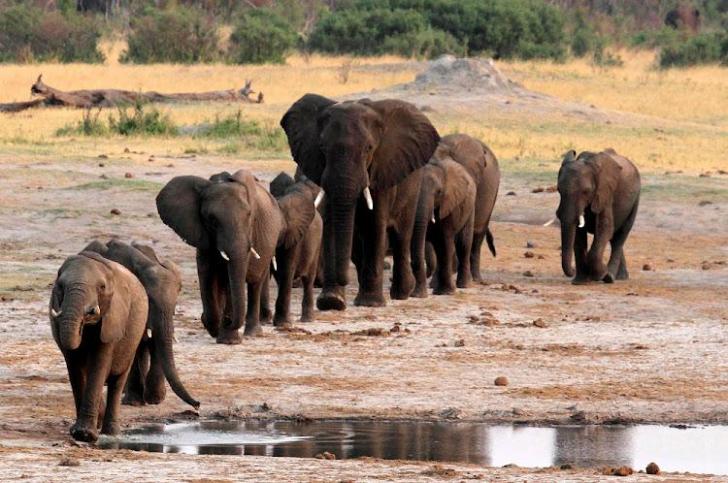News / National
Bulilima villagers flee homes in fear of elephant attacks
08 Sep 2024 at 08:53hrs |
0 Views

In Bulilima, Matabeleland South, villagers are fleeing their homes due to a surge of elephant invasions driven by drought conditions. The elephants, migrating from Botswana, have been seeking food and water, causing significant distress and damage in Plumtree and surrounding areas. With natural water sources drying up, the elephants have entered human settlements, disrupting daily life and forcing residents to seek safety elsewhere.
Villages such as Tokwana have been particularly hard-hit, with families abandoning their homes to escape the threat. The elephants have been spotted near Plumtree town, consuming water from various sources and causing extensive damage to properties and crops. The local prison farm has also been affected, with the elephants destroying crops crucial for feeding inmates and generating income.
Residents are calling for intervention from the Parks and Wildlife Management Authority, expressing frustration with the slow response to their distress calls. They have reported encountering large herds of elephants, creating dangerous situations and making it difficult for villagers to move around safely. Some residents have suggested educational programs on handling elephant encounters and better infrastructure to manage the situation.
Councillor Similo Ndlovu has attributed the elephant invasions to an El Nino-induced drought, which has exacerbated the situation by pushing elephants into human settlements. He urges authorities to be more proactive in addressing the issue and preventing further destruction. Biliati Mulauzi from the Bulilima rural district council also noted the alarming increase in elephant populations and the challenges in driving them away from private properties.
The Zimbabwe Prisons and Correctional Services have confirmed the significant loss from the elephant damage, highlighting the need for restoration of their agricultural projects. Lawmaker Dingumuzi Phuti has proposed building an electric fence and creating additional water sources within game areas to mitigate the problem. Parks spokesperson Tinashe Farawo reassured that rangers respond to distress calls as quickly as possible, but emphasized the need for community cooperation and accurate reporting to manage the ongoing human-wildlife conflict.
Villages such as Tokwana have been particularly hard-hit, with families abandoning their homes to escape the threat. The elephants have been spotted near Plumtree town, consuming water from various sources and causing extensive damage to properties and crops. The local prison farm has also been affected, with the elephants destroying crops crucial for feeding inmates and generating income.
Councillor Similo Ndlovu has attributed the elephant invasions to an El Nino-induced drought, which has exacerbated the situation by pushing elephants into human settlements. He urges authorities to be more proactive in addressing the issue and preventing further destruction. Biliati Mulauzi from the Bulilima rural district council also noted the alarming increase in elephant populations and the challenges in driving them away from private properties.
The Zimbabwe Prisons and Correctional Services have confirmed the significant loss from the elephant damage, highlighting the need for restoration of their agricultural projects. Lawmaker Dingumuzi Phuti has proposed building an electric fence and creating additional water sources within game areas to mitigate the problem. Parks spokesperson Tinashe Farawo reassured that rangers respond to distress calls as quickly as possible, but emphasized the need for community cooperation and accurate reporting to manage the ongoing human-wildlife conflict.
Source - the standard
Join the discussion
Loading comments…




























